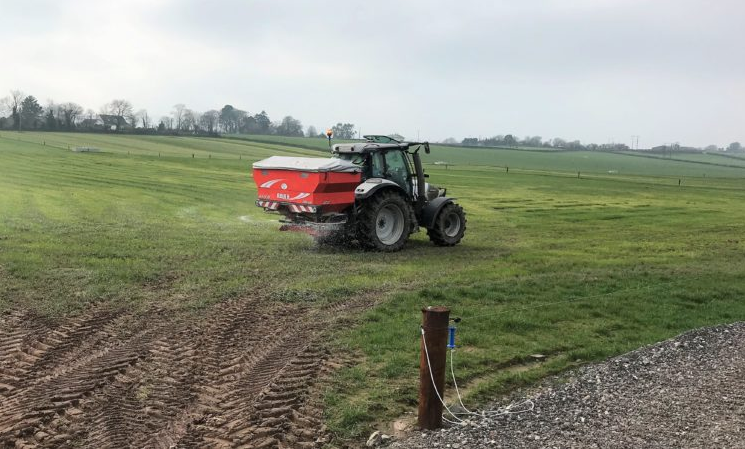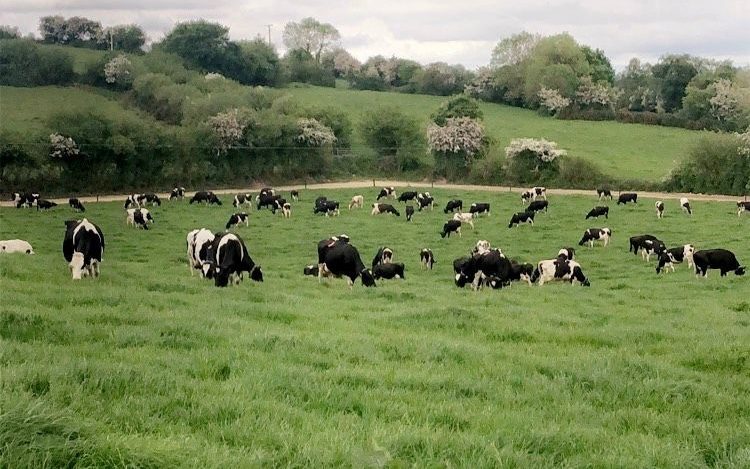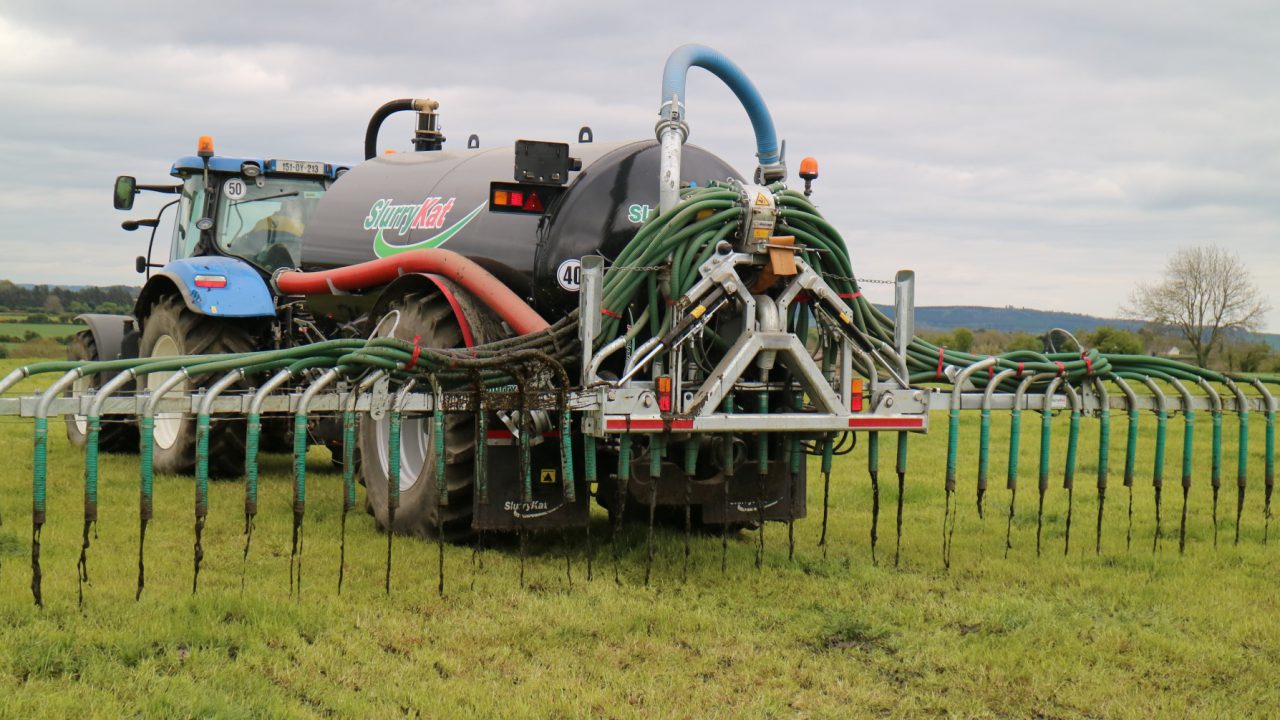The Draft Nitrates Action Programme (NAP) which has been published by the Department of Agriculture, Food and the Marine (DAFM), outlines proposed new measures for slurry storage and management.
It also proposes measures in relation to soiled water storage, livestock excretion rates and chemical fertiliser controls.
This is the first review of the NAP and DAFM said that during discussions with stakeholders, it became clear that a “wider more holistic” approach to controlling nutrient and sediment losses from agriculture is needed.
Slurry storage and management
According to the draft NAP, one of the primary non-compliances identified is inadequate slurry storage on farms.
For farmers who wish to apply for a derogation, they have to have the legal minimum slurry storage capacity in place in order to be eligible.
The draft programme outlines that to reduce the impact of nutrient losses in the riskiest period, the spreading of slurry must be applied as follows:
- From January 1, 2022 all slurry generated on a holding must be applied by October 8 of that year;
- From January 1, 2023 all slurry generated on a holding must be applied by October 1 of that year.
In relation to the commencement of the closed period for slurry application, the Minister for Housing shall establish predefined scientific criteria for the safe application of slurry, up to October 15 each year.
These criteria will be published by the minister within six months of the commencement of the new NAP. Where these criteria are strictly met, farmers may be permitted to spread slurry.
Soiled water storage
DAFM said that the addition of soiled water to slurry tanks is causing many of the issues related to storage capacity that are being observed across the country.
To reduce the impact of nutrient losses in the riskiest period, it is proposed that the spreading of soiled water will be prohibited from the following dates;
- From January 1, 2022 – between December 21 and December 31;
- From January 1, 2023 it will be prohibited between December 10 and December 31;
- From the January 1, 2024 – between December 1 and December 31;
- January 1, 2025 onwards for winter/liquid milk producers between December 1 and December 31.
All holdings producing soiled water must have a minimum of four weeks’ storage in place by December 31, 2024 except for winter/liquid milk producers where this storage needs to be in place by December 31, 2025.
Livestock excretion rates
The excretion rate of all livestock categories is being reviewed as part of the Nitrates Action Programme following the most recent increase in the annual livestock nitrogen excretion rate for the dairy cow (from 85kg/ha organic N to 89kg/ha organic N).
The EU Commission has raised issues with Ireland’s approach of a single organic output figure and has requested Ireland to evaluate allocating an excretion factor to the dairy cow based on milk yield.
DAFM requested Teagasc to review this request and this analysis reviewed the organic output versus milk yield.
The findings conclude that banded against annual milk yield, dairy cows would produce an organic output per cow as in the table below.
Bands Milk yields Excretion rate Band 1 <4,500kg 80kg organic N/ha Band 2 4,501 up to 6,500kg 92kg organic N/ha Band 3 >6,500kg 106kg organic N/ha
These new excretion rates will be introduced into the new Good Agricultural Practice Regulations, commencing on January 1, 2023.
Chemical fertiliser controls

National nitrogen allowances will be reduced by 10% nationally from January 2022, and by a further 5% from January 1, 2024, pending interim review of the programme, scientific advice and water quality trends.
Also, the period when the application of chemical fertilisers to land is prohibited in springtime will be extended by 14 days for Zones A, B and C.
In relation to the opening period for chemical fertiliser application, predefined scientific criteria will be established for the safe application of chemical fertiliser in those specific 14 days.
These criteria will be published within six months of the commencement of the new NAP and will be applicable from January 1, 2023.
Soil testing in the draft Nitrates Action Programme
A soil test refers to the results of an analysis of a soil sample carried out by a soil-testing laboratory.
From January 1, 2022, all farmers above 170kg N/ha must have soil analysis results available. Where soil samples are not undertaken, Index 4 for phosphorus will be assumed.
From January 1, 2023, all farmers above 130kg N/ha must have soil analysis results available. Where soil samples are not undertaken, Index 4 for phosphorus will also be assumed.
All tillage land sown from January 1, 2022 must have valid e soil analysis results available.
Grazing land management

Currently for stocking rate calculations, DAFM has said that commonage is permitted for inclusion for stocking rate purposes at 170kg N/ha.
In order to protect these areas further and the whole farm nutrient planning process, the department has said that the stocking rate allowance will not exceed 50kg N/ha.
There is no chemical fertiliser allowances to be afforded to commonage lands.
Reduced storage through outwintering will only be applicable to farmers stocked <100kg/ha from January 1, 2025.
Crude protein in concentrate feeds
From January 1, 2022, it is proposed that on on holdings with stocking rates of 130kg N/ha from grazing livestock manure or above prior to export of livestock manure from the holding, a maximum crude protein content of 15% is permissible in concentrate feedstuff fed to grazing livestock on the holding between April 15 and September 30.
Nitrates Action Programme
Coinciding with the publication of the draft Nitrates Action Programme is the opening of a six-week public consultation on the draft NAP Natura impact statement (NIS) and the strategic environmental assessment (SEA).
Ireland’s current NAP, which includes the nitrates derogation, will expire on December 31. Its replacement scheme covering 2022-2025 will not be approved by then.
However, it is expected to be finalised in early March, and ongoing negotiations with the European Commission on this package of measures will clear the way for a formal vote by the EU Nitrates Management Committee on Ireland’s request for a renewal of its derogation under the Nitrates Directive.
This vote is scheduled to take place in March 2022.
